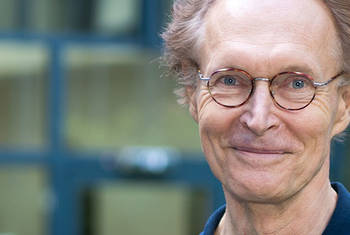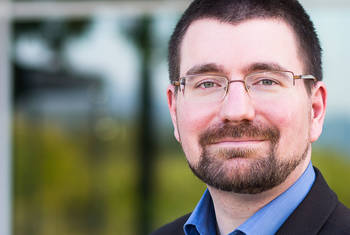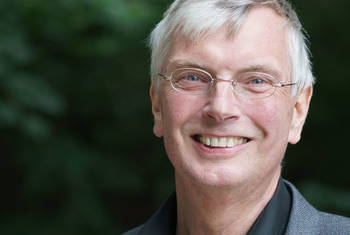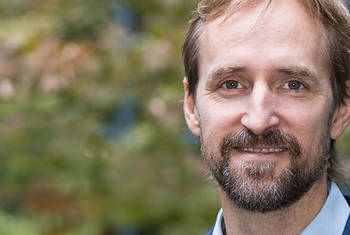Winfried Menninghaus Are There Different Types of Beauty?
Professor Winfried Menninghaus is Director of the Department of Language and Literature at the Max Planck Institute for Empirical Aesthetics. Having previously directed the interdisciplinary research cluster Languages of Emotions at the Free University of Berlin, Menninghaus’s research interests include philosophical, empirical and evolutionary aesthetics and classical rhetoric and poetics. A member of the Berlin-Brandenburg Academy of Sciences since 2002, Menninghaus’s monograph Aesthetics After Darwin: The Multiple Origins and Functions of the Arts was published in 2019.
Area of Research
Philosophical, Empirical and Evolutionary Aesthetics and Classical Rhetoric and Poetics
since 2013
Director of the Department of Language and Literature
Max Planck Society (more details)
Max Planck Institute for Empirical Aesthetics
2007-2010
Director of Cluster
Free University of Berlin (Freie Universität Berlin)
Cluster „Languages of Emotions“
1989-2013
Professor
Free University of Berlin (Freie Universität Berlin)
Institut für Allgemeine und Vergleichende Literaturwissenschaft
1994-2001
Guest Professor
Yale University
1985-1989
Assistant Professor
Free University of Berlin (Freie Universität Berlin)
Institut für Allgemeine und Vergleichende Literaturwissenschaft
1986
Habilitation
Free University of Berlin (Freie Universität Berlin)
1979
Dr. Phil
University of Marburg
and University of Heidelberg
1976
1. Staatsexamen
University of Marburg
and University of Heidelberg
1971-1979
German Studies & Studies in Philosophy
University of Marburg
and University of Heidelberg
- Ordentliches Mitglied der Berlin-Brandenburgischen Akademie der Wissenschaften (BBAW) (since 2002)
Prizes
- „Premio Internazionale di Estetica“ (verliehen von der Società Italiana di Estetica) (2012)
 © Maximilian Dörrbecker
© Maximilian Dörrbecker
Max Planck Society
Frankfurt am Main, Germany"The Max Planck Society is Germany's most successful research organization. Since its establishment in 1948, no fewer than 18 Nobel laureates have emerged from the ranks of its scientists, putting it on a par with the best and most prestigious research institutions worldwide. The more than 15,000 publications each year in internationally renowned scientific journals are proof of the outstanding research work conducted at Max Planck Institutes – and many of those articles are among the most-cited publications in the relevant field." (Source)
Institute
Max Planck Institute for Empirical Aesthetics
The objective of the Max Planck Institute for Empirical Aesthetics is to arrive at a deeper understanding of the mechanisms, elicitors and functions of aesthetic liking and aesthetic preferences: Who appreciates what and why and under which conditions? And what functions do aesthetic practices and preferences serve for individuals, social groups and societies? The research focuses primarily on the foundations of aesthetic evaluation, perception and experience. (Source)
Map
Are there different types of beauty? In this video, WINFRIED MENNINGHAUS investigates the meanings of and values inherent in four categories of subject appeal, namely beauty, elegance, grace, and sexiness. Adopting a bottom-up approach which foregrounds individual beliefs over theoretical assumptions, Menninghaus finds that elegance, grace, and sexiness are sub-variants of the broader notion of beauty. Among its many insights, the work explores why persons of outstanding beauty are perceived as self-centered while, by contrast, elegance is associated with positive social virtues.
LT Video Publication DOI: https://doi.org/10.21036/LTPUB10777
Beauty, Elegance, Grace, and Sexiness Compared
- Winfried Menninghaus, Valentin Wagner, Vanessa Kegel, Christine A. Knoop and Wolff Schlotz
- PLOS ONE
- Published in 2019
The Emotional Power of Poetry: Neural Circuitry, Psychophysiology and Compositional Principles
- Eugen Wassiliwizky, Stefan Koelsch, Valentin Wagner, Thomas Jacobsen and Winfried Menninghaus
- Social Cognitive and Affective Neuroscience
- Published in 2017
Aesthetic Appreciation of Poetry Correlates with Ease of Processing in Event-related Potentials
- Christian Obermeier, Sonja A. Kotz, Sarah Jessen, Tim Raettig, Martin von Koppenfels and Winfried Menninghaus
- Cognitive, Affective, & Behavioral Neuroscience
- Published in 2016
Mapping the Aesthetic Space of Literature “From Below”
- Christine A. Knoop, Valentin Wagner, Thomas Jacobsen and Winfried Menninghaus
- Poetics
- Published in 2016









